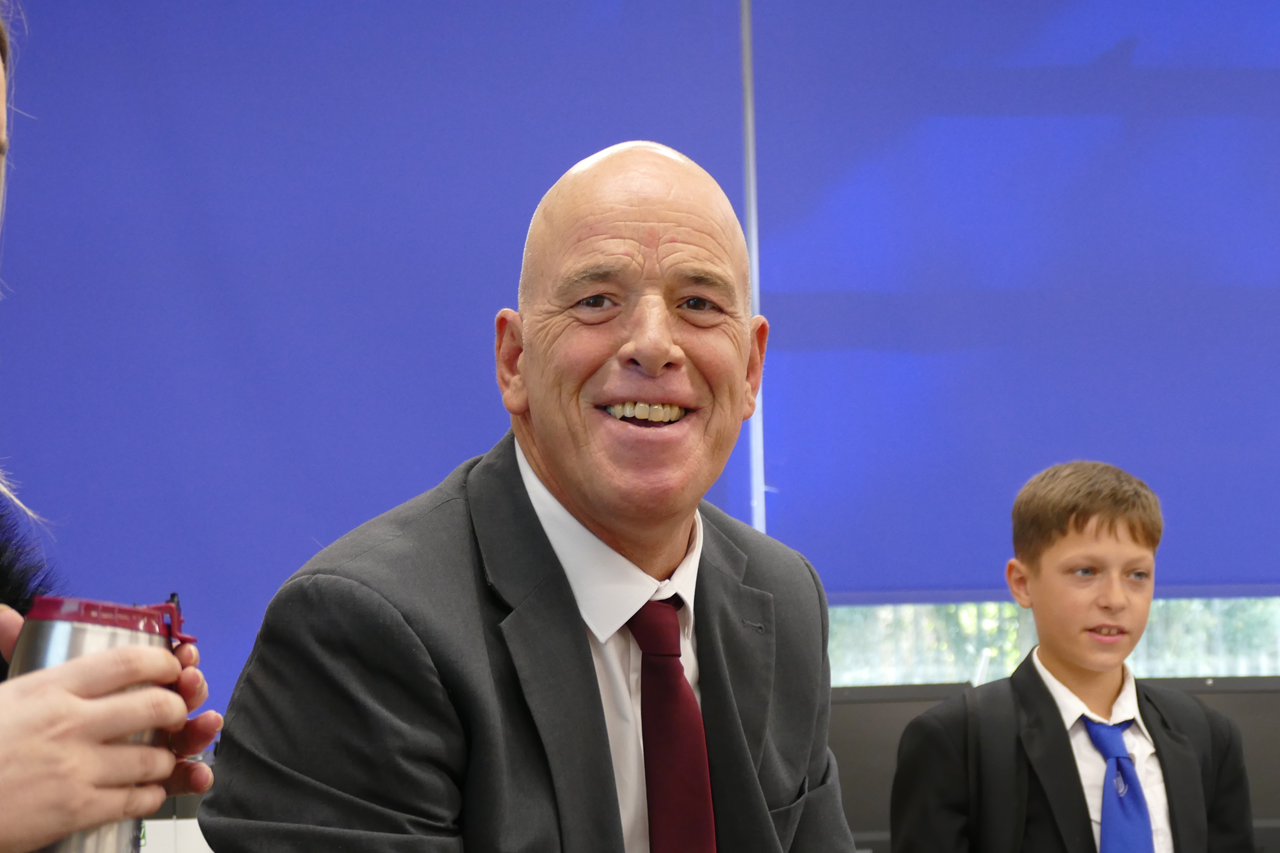Placing creativity at the core of education
Neil Moore is a Department Leader of Cross-Curricular Studies and Media at William Edwards School who has worked with the school for over a decade. He spoke to us about the importance of art in schools within South West Essex Community Education Trust (SWECET).

“From my early days as an English Teacher, I couldn’t shake the feeling that traditional schooling lacked the spark needed to truly ignite a love for learning. The rigid structure of teachers dictating each step can stifle, rather than nurture. It became my mission to redefine the educational experience, ensuring that children not only learned but did so with joy and creativity as their foundation.
Over the past decade, we have been developing a creative curriculum. As this took form, incredible opportunities have unfurled for our students. Now we’re reaping the rewards, with William Edwards School achieving an Artsmark Platinum Award and myself being honoured with the ‘Creative Teaching and Learning’ award at the Thurrock Education Awards.
The ‘Creating Teaching and Learning’ award recognized our project-based curriculum, which goes beyond traditional teaching methods. Through this curriculum, we have been actively involved in fundraising for charities, whilst forging meaningful partnerships with institutions such as the Royal Opera House, thanks to our involvement in the Thurrock Trailblazer project. This initiative not only enriched our pupils’ cultural awareness but has become an integral part of their personal development.
Achieving awards like this fuels our collaborative efforts. As part of the Thurrock Trailblazer, I’ve been lucky enough to witness the power of authentic art experiences, from captivating visits to the Tower of London to community-led projects like the recent carnival. These trips have strengthened the cooperation between schools within SWECET.
The Trailblazer project has also allowed us to collaborate with professional dancers, who worked with our GCSE dance students. One key memory that emerged from this was when our Year 10 pupils were taken to SWECET’s primary schools to teach them the skills and basics of dance. It was powerful to see our pupils grow in confidence as they shared their talents with fellow students across the Trust.
Despite my full-time teaching role, I am motivated by the transformative impact I witness in pupils. The success stories from an art-focused curriculum speak volumes, like Megan’s evolution from a timid Year 7 student to embarking on a degree pathway at one of England’s top law firms. These stories affirm our commitment to providing art experiences as they have a huge impact on personal growth and development.
Art is a catalyst for self-expression. It encourages a sense of belonging among students, positively influencing their behaviour and attitudes towards learning. Alongside my teaching role, I take on the responsibility of challenging the current landscape and championing the arts. Art programmes are fragile in the face of shifting government priorities, and my job is pivotal to keeping it alive. I would like to see art education with a sustainable future – one that survives staff changes and encourages continuous collaboration.
Art involves everyone and everyone should contribute, regardless of skill level. A future where creativity is a concrete and integral part of education is one I hope to see; one where pupils explore their potential, express themselves authentically, and build a strong self-belief.
So, how do we sustain the arts going forward? To me, it is about creating a mindset that values and nurtures creativity in every aspect of education.”

